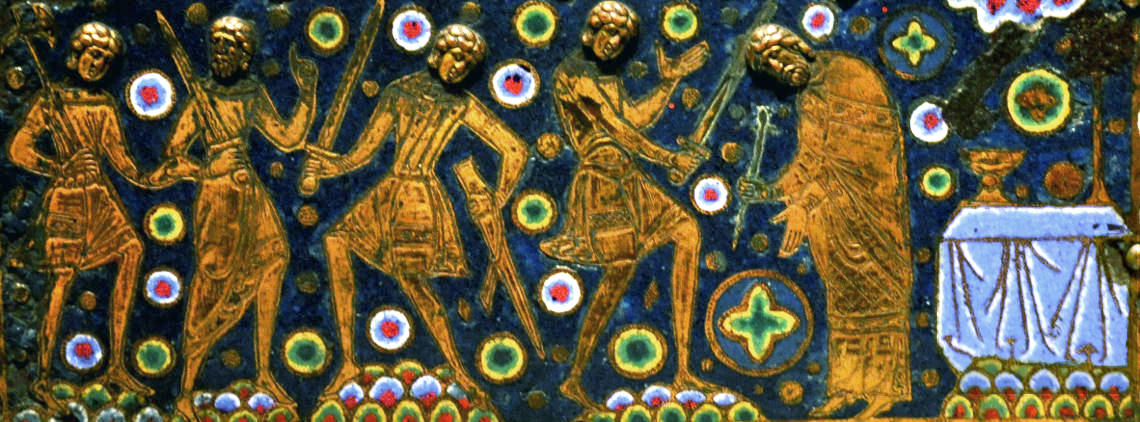English Bishop: "the trouble with Francis, is holding all the things he says together". I won't say who said this to me, but it was a little while back. I wonder if he has a clearer understanding of our Pope's thinking now. For two years we waited for Francis' Exhortation on Marriage - 'Amoris Laetitia' (The Joy of Love), hoping for some clarity. Now it's here I find the quote above quite apt. People seem to find what they want in it, from fear to favour. I began to think we were moving to some conclusion when Cardinal Burke said that the Exhortation changes no teaching or practice. He said it's just an opinion piece by Francis. Being a top church lawyer, he should know. But then we had Pope Francis himself answer questions on just this point - about the diverse readings that are coming out. Francis seemed to contradict Burke, saying that much has changed after all. Francis said if you want to understand the Exhortation correctly, read Cardinal Schonborn’s presentation.
So Francis thinks he's changed things, but to understand what's changed, we need to go to Schonborn. So much for clear communication! I'll try and paraphrase what I understood Schonborn was saying.
In the past, talk of 2 categories of marriage: regular and irregular, created a barrier which those outside the regular box, found discouraging and even insurmountable.
He doesn't say this explicitly but this observation of a 'barrier', seems to call for what lawyers might call a 'work around'. We can't change the rules, so we work around them to deliver what is wanted. When seeking a work around, especially one which changes direction, a typical tactic is to look back to basics: to present what we want to achieve on solid foundations. So back to basics we go:
"It is a matter of reaching out to everyone", "speaking about all situations without cataloguing them, without categorising, with that outlook of fundamental benevolence that is associated with the heart of God, with the eyes of Jesus that exclude no-one, that welcome all and grant the 'joy of the Gospel' to all."
"In this climate of welcome, the discourse on the Christian vision of marriage and the family becomes an invitation, an encouragement, to the joy of love in which we can believe and which excludes no-one, truly and sincerely no-one"
If everyone is invited to the joy of love with no exceptions, then married joy is proposed here as something everyone can find. Even that is, in what 'old speak' termed 'irregular marriages', like the divorced remarried. There is no reference I can find here, to having to live as brother and sister. I read this as an encouragement to all couples in potentially any form of union, to borrow from Catholic principles, to foster closer and more permanent coupling.
Schonborn sets this against a new background where the different situations in life have simply been accepted.
"My great joy as a result of this document resides in the fact that it coherently overcomes that artificial, superficial, clear division between 'regular' and 'irregular' ".
He continues, that the document simply: "subjects everyone to the common call of the Gospel".
First of all, I don't need to explain what a contrast this is to past Church teaching. It warrants an explanation of what we are to make of the past view. Was it wrong? How come? Schonborn is silent on such matters.
Secondly there seems to be a mixing of two previously distinct things here. That is: the general call to everyone to receive the gospel as a grace, and the specific grace given to an exclusive lifelong marriage. The first of these, would typically invite everyone to practice charity towards others (multiple people), but the second involves initiatives that we can only take in relation to one other person out of the whole human race. The identity of that unique individual is declared in a sacramental marriage. The principles of 'multiple' vs 'singular', are distinct, they are not mixable. You can no more invite the village into a singular marriage, than you can invite those outside the grace of marriage, to walk in that grace. Either we believe there is a specific grace for marriage, or we don't.
I just can't make sense of Schonborn's presentation without jettisoning the specificity and exclusivity of marriage.
I'm concerned, because if people in irregular relationships stay the course, would not the lack of discrimination between regular and irregular relationships, would it not mislead such couples if sacramental marriage is not possible for them? For example, one of the positive tips in the Christian model they could come to hear, would propose they try to not contracept. The standard line is this allows the couple to give themselves more fully to one another. Assuming they follow along this far, they would reasonably think this is so their love may be fruitful, as is God's love. This is after all positive inviting talk. This practice is supposed to help bring the couple into deeper tri-union with each other and God, joining in His creative work. But how long can we keep the mention of sin hidden under a bushel? At some point they might discover that actually, the Church teaches them to stop and desist. That their exclusive union is not what God ultimately wants for them. If I might borrow a term from the world of finance, I'd say that they were being mis-sold the dream.
At best, I read this de-emphasis and trivialisation of irregularity as a manifesto for Truth delayed. Purely on human terms, that doesn't seem fair or right.

Post a comment